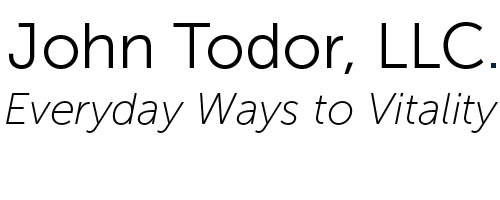Unlocking Nutrient Absorption: The Role of Fat in Enhancing Health Benefits
We eat to maintain our physical vitality! We need the energy and the body needs a host of nutrients to maintain health. But just eating does not always mean the body get the nutrients it needs.
In the pursuit of optimal health, we often focus on consuming nutrient-rich foods like vegetables, fruits, and spices. However, what many may not realize is that the way we prepare and consume these foods can significantly impact their nutritional benefits. One crucial element in this equation is fat. Contrary to popular belief, not all fats are harmful. In fact, certain types of fats play a vital role in enhancing the absorption of essential nutrients in the human body.
Understanding Nutrient Absorption:
Before delving into the role of fat, it's important to understand the concept of nutrient absorption. Nutrients such as vitamins, minerals, and phytonutrients are essential for various bodily functions, including metabolism, immunity, and overall well-being. However, the body's ability to absorb these nutrients can vary based on several factors, including the presence of dietary fat.
Enhancing Carotenoid Absorption with Full-Fat Salads:
Carotenoids are a group of pigments found in fruits and vegetables, responsible for their vibrant colors. These compounds have been associated with numerous health benefits, including antioxidant properties and supporting eye health. However, carotenoids are fat-soluble, meaning they require dietary fat for optimal absorption.
When consumed with full-fat dressings or toppings, salads become more than just a bowl of greens. The presence of healthy fats like those found in olive oil, avocado, or nuts significantly enhances the absorption of carotenoids from vegetables such as carrots, spinach, and bell peppers. Research suggests that the addition of fat to salads can increase carotenoid absorption by up to fourfold, making it a simple yet effective way to maximize the nutritional benefits of your meal.
Unlocking Curcumin's Potential with Fat:
Curcumin, the active compound in turmeric responsible for its vibrant yellow color and numerous health benefits, faces similar absorption challenges. Despite its potent anti-inflammatory and antioxidant properties, curcumin is poorly absorbed by the body when consumed alone.
However, pairing turmeric with fat-containing foods or incorporating healthy fats into turmeric-based dishes can significantly enhance its bioavailability. This is because curcumin is fat-soluble, meaning it dissolves in fat, making it easier for the body to absorb and utilize. Whether adding coconut milk to a curry or mixing turmeric with a source of fat like yogurt, combining curcumin with fat-rich ingredients can amplify its therapeutic effects.
The Synergistic Effect of Olive Oil on Tomato Polyphenols:
Tomatoes are renowned for their rich antioxidant content, particularly polyphenols like lycopene, which have been linked to reduced risk of chronic diseases such as heart disease and certain cancers. However, similar to carotenoids and curcumin, the absorption of tomato polyphenols can be enhanced by consuming them with fat.
Olive oil, a staple of the Mediterranean diet, has been shown to significantly improve the absorption of polyphenols from tomatoes. Studies indicate that pairing tomatoes with olive oil not only enhances the absorption of key antioxidants but also increases their stability in the bloodstream, prolonging their beneficial effects. Whether drizzling olive oil over a tomato salad or incorporating it into pasta sauce, this combination exemplifies how the right fats can unlock the full potential of plant-based nutrients.
Defining Good Fats:
Not all fats are created equal, and distinguishing between "good" and "bad" fats is crucial for optimizing health. Good fats, also known as unsaturated fats, include monounsaturated and polyunsaturated fats. These fats are predominantly found in plant-based foods and sources such as avocados, nuts, seeds, and olive oil.
In contrast, bad fats, such as trans fats and saturated fats, are typically found in processed foods, fried foods, and animal products. These fats have been linked to adverse health effects, including increased risk of heart disease and inflammation.
In conclusion, the incorporation of healthy fats into our diet plays a pivotal role in enhancing the absorption of essential nutrients like carotenoids, curcumin, and polyphenols. By understanding the synergy between fat and nutrients, we can optimize our meals to maximize their nutritional benefits and support overall health and well-being. So, the next time you're enjoying a salad, cooking with turmeric, or savoring a tomato-based dish, remember to include a source of good fats to unlock the full potential of these nutritious foods.
